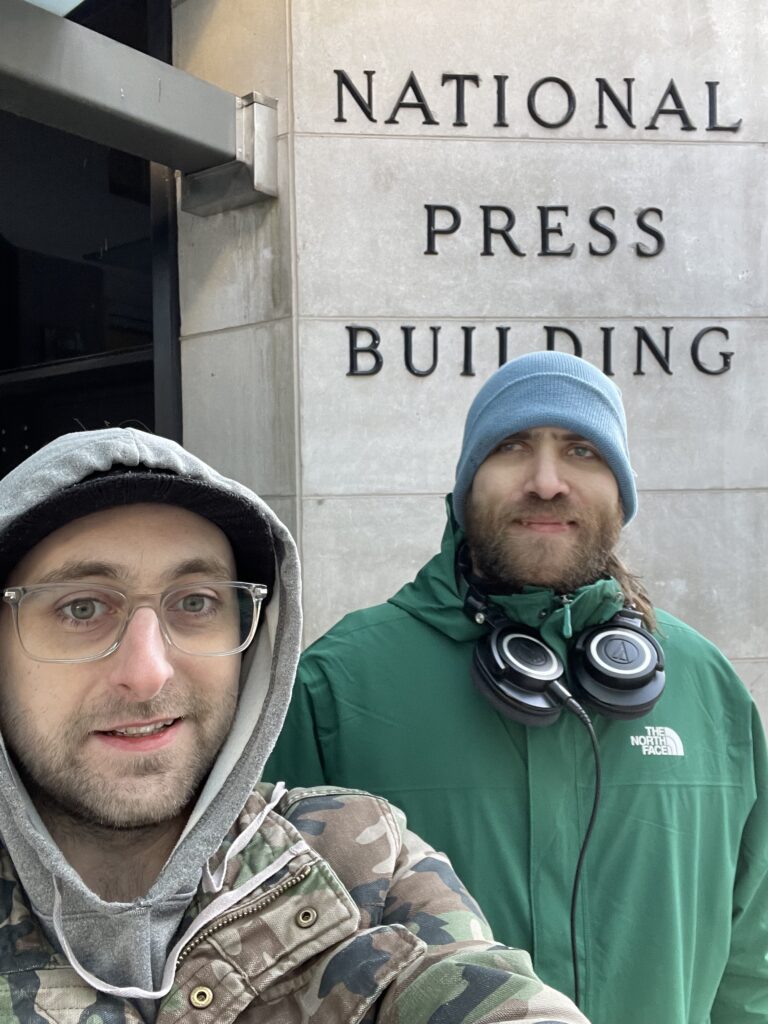On January 20, 2025, President Donald J. Trump issued Executive Order 14160, titled “Protecting the Meaning and Value of American Citizenship,” which seeks to redefine the scope of birthright citizenship under the Fourteenth Amendment (The White House, 2025). This order asserts that individuals born in the United States to mothers who were either unlawfully present or present on temporary visas, and whose fathers were not U.S. citizens or lawful permanent residents at the time of birth, are not entitled to automatic citizenship (The White House, 2025). While the intent to address perceived issues in immigration policy is clear, and many supporters of President Trump, including myself, value his commitment to prioritizing American interests, this executive action raises significant constitutional concerns. The Fourteenth Amendment’s guarantee of birthright citizenship is a cornerstone of American law, and altering its interpretation through executive order risks overstepping the bounds of presidential authority. This article serves as a cautionary reflection, urging that such a profound change should be addressed through the deliberate and democratic processes of Congress, not by unilateral executive action.
The Fourteenth Amendment, ratified in 1868, states: “All persons born or naturalized in the United States, and subject to the jurisdiction thereof, are citizens of the United States and of the State wherein they reside” (U.S. Const. amend. XIV, § 1). This clause, often referred to as the Citizenship Clause, was designed to overturn the infamous Dred Scott v. Sandford decision of 1857, which denied citizenship to persons of African descent (The White House, 2025). The clause’s language is broad and unambiguous, establishing birthright citizenship—known as jus soli, or “right of soil”—as a fundamental principle of American identity. The Supreme Court’s landmark decision in United States v. Wong Kim Ark (1898) further clarified that children born in the United States to non-citizen parents are entitled to citizenship, regardless of their parents’ status, so long as they are subject to U.S. jurisdiction (169 U.S. 649, 649–51). This precedent has stood for over a century, shaping the nation’s understanding of who is a citizen.
Executive Order 14160 argues that the phrase “subject to the jurisdiction thereof” excludes certain categories of individuals born in the United States, specifically those whose mothers were unlawfully present or on temporary visas and whose fathers were not citizens or lawful permanent residents (The White House, 2025). This interpretation, however, diverges from established legal precedent. The Wong Kim Ark decision explicitly rejected the notion that parentage determines a child’s citizenship status, affirming that “the fundamental rule of citizenship by birth within the territory” applies broadly (169 U.S. 649, 649–51). The executive order’s attempt to narrow this definition through administrative action has already faced legal challenges, with multiple federal courts issuing preliminary injunctions to block its implementation, citing its conflict with the Fourteenth Amendment (New York City Bar Association, 2025). These judicial interventions underscore a critical point: the Constitution is the supreme law of the land, and its provisions cannot be altered by executive fiat.
As a supporter of President Trump, I admire his bold approach to addressing complex issues like immigration and national identity. His administration’s focus on securing American sovereignty and prioritizing citizens’ interests resonates with many who believe the nation’s laws must be enforced with rigor. However, the method of achieving these goals matters profoundly. The separation of powers, a bedrock of our constitutional republic, assigns distinct roles to the executive, legislative, and judicial branches. Amending the Constitution or reinterpreting its core provisions is a power reserved for Congress through the amendment process outlined in Article V, which requires a two-thirds majority in both houses and ratification by three-fourths of the states (U.S. Const. art. V). Alternatively, significant changes to citizenship policy could be addressed through legislation, as Congress has the authority to define immigration and naturalization laws under Article I, Section 8 (U.S. Const. art. I, § 8). Executive Order 14160, by contrast, bypasses these democratic mechanisms, risking accusations of overreach and undermining the very rule of law that President Trump’s supporters champion.
The implications of this approach are not merely legal but also practical. Birthright citizenship has been a defining feature of American exceptionalism, distinguishing the United States from nations with more restrictive citizenship policies. Altering it through executive action could lead to a patchwork of enforcement, legal challenges, and uncertainty for millions of individuals born on U.S. soil. Reports have already emerged of unintended consequences, such as Native Americans being detained by Immigration and Customs Enforcement due to confusion over documentation (New York City Bar Association, 2025). Such outcomes could erode public trust in the administration’s broader agenda, even among its supporters, and fuel perceptions of unfairness.
This is not to say that the issue of birthright citizenship is beyond debate. Reasonable arguments exist that the Fourteenth Amendment’s application to modern immigration challenges warrants reexamination. For example, some contend that the clause was not intended to grant citizenship to children of undocumented immigrants or temporary visitors, a perspective echoed in the executive order’s rationale (The White House, 2025). These arguments deserve a hearing, but they belong in the halls of Congress, where elected representatives can deliberate, debate, and craft legislation that reflects the will of the American people. A congressional approach would allow for a transparent and inclusive process, ensuring that any change to citizenship policy is thoroughly vetted and constitutionally sound.
President Trump’s leadership has galvanized millions by emphasizing accountability, sovereignty, and the protection of American values. To sustain this momentum, his administration must navigate the delicate balance between bold action and constitutional fidelity. Executive Order 14160, while well-intentioned, risks overstepping the executive’s authority and inviting judicial rebuke, as evidenced by the nationwide injunctions already in place (NAFSA, 2025). Instead of pursuing unilateral action, I urge the administration to work with Congress to address concerns about birthright citizenship through legislation or, if necessary, a constitutional amendment. This approach would respect the separation of powers, uphold the rule of law, and ensure that any changes reflect the democratic will of the nation.
In conclusion, while I share President Trump’s commitment to strengthening America, the Constitution must remain sacrosanct. Executive Order 14160’s attempt to redefine birthright citizenship by executive decree is a step too far, as it encroaches on powers reserved for Congress and the states. The Fourteenth Amendment’s guarantee of citizenship is not a mere policy preference but a constitutional mandate, one that has defined the nation for over 150 years. If reform is needed, let it come through the democratic process, not by rewriting the Constitution with the stroke of a pen. The writing on the wall is clear: true reform requires patience, deliberation, and fidelity to the principles that make America great.
References
- NAFSA. (2025, May 14). Executive Order 14160 of January 20, 2025, Protecting The Meaning And Value Of American Citizenship. Retrieved from https://www.nafsa.org
- New York City Bar Association. (2025, March 6). The Executive Order on Birthright Citizenship is Unconstitutional. Retrieved from https://www.nycbar.org
- The White House. (2025, January 20). Protecting The Meaning And Value Of American Citizenship. Retrieved from https://www.whitehouse.gov/presidential-actions/2025/01/protecting-the-meaning-and-value-of-american-citizenship/
- United States v. Wong Kim Ark, 169 U.S. 649 (1898).
- U.S. Constitution, Amendment XIV, Section 1.
- U.S. Constitution, Article I, Section 8.
- U.S. Constitution, Article V.











